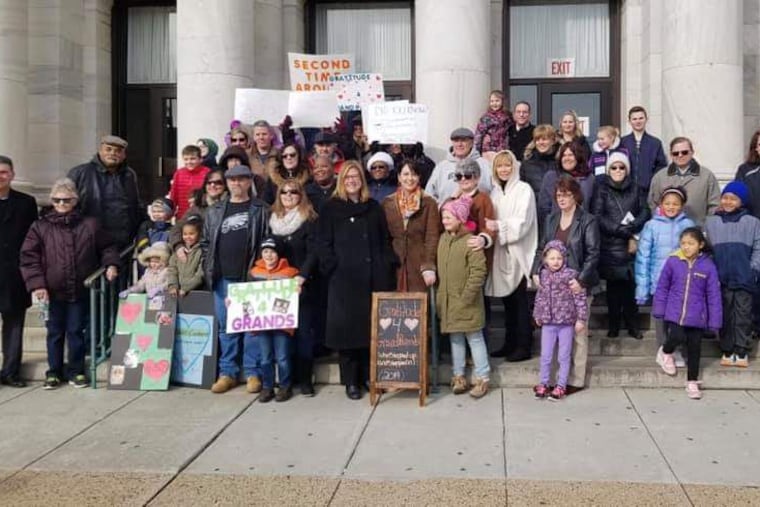I overdosed in Delaware. The state bears some blame for its high rate of deaths.
People say they are “pro-life,” but then they drive past us, the people who are living on the streets, suffering because they can’t get the proper help.

You’ve seen them. The woman with the sign. The man on the stoop, with a dog. The people excluded from society, living in a tent, whose only contentment comes from the moment they shoot up.
I was one of them. For one and a half years, I injected heroin in seedy motels, gas stations, and on the streets of Dover, Del. I went to rehab twice, but it didn’t work. I only stopped after my cousin Mickey saved me from dying after an overdose.
It began when I was 20, during my junior year of undergrad at Delaware State University, in 2016. I was depressed, with undiagnosed bipolar disorder. No amount of school was going to change my belief that I was never going to find financial security; as an English major, I believed that even if I got a doctorate, I’d just be an adjunct faculty at some college, living in poverty.
To escape this reality, I started snorting heroin, then switched to injections when I wasn’t getting high enough. I supported my drug habit by working three jobs tutoring. I thought I had everything under control. But that’s the thing about drug use; you never know if you’re the horse or the rider until it’s too late.
“That’s the thing about drug use; you never know if you’re the horse or the rider until it’s too late.”
In 2017, I graduated from DSU. Soon after, I entered a motel room behind a Kohl’s in Dover and shot up. And this time, I died.
All that happened was I went to sleep. That’s what overdose feels like.
I woke up after Mickey shot me up with cocaine, which sprang me back to life. When I opened my eyes, I couldn’t understand why he was crying. Mickey then began to wean me off heroin; I became an alcoholic instead.
In 2019, I tried again to obtain a master’s in English at the University of Louisiana, Lafayette, but spent my graduate stipend on drinking and snorting cocaine. In the middle of teaching class, my cousin Hal FaceTimed me from Kent General Hospital in Dover. I let my students leave early once I saw Mickey with tubes up his nose. A machine was breathing for him. He had track marks between his toes.
“Say hi to your cousin, Mickey. This is Jordan. Tell your cousin goodbye for me. We love you, Mickey,” Hal said.
I couldn’t speak.
“Jordan … Jordan … are you there? We’re going to take him off life support now. The family is here. Is there anything you want to say to them or Mickey before we take him off his oxygen?”
I told Mickey the only thing I could think of: “I love you.”
In 2019, 435 people died of drug overdoses in Delaware. One of them was my cousin Mickey, who had saved me from the same fate two years earlier.
After Mickey died, I knew I had to change. Unlike previous attempts to quit, I faced my emotions with writing and got treatment for my bipolar disorder. I’ve been sober for two years.
Since 2019, overdoses have only risen in Delaware, which now has the third highest rate of overdose death in the U.S. In 2021, 515 people died of overdoses in the state, a 15% increase over 2020.
» READ MORE: Philadelphians who died of a drug overdose often had sought help for addiction, report finds
There are many reasons why someone overdoses, and no single culprit. But I know from experience that the state of Delaware bears some responsibility. The state puts too much emphasis on abstinence — meaning, quitting without the use of medications to treat opioid use disorder — and not enough on harm reduction policies such as clean needle-exchange programs, overdose prevention centers, and a clean, legal, regulated supply. I witnessed this firsthand. One time, when I ended up at a psychiatric hospital, I told the providers there that I was going to continue using heroin and needed medications such as Suboxone to quit. They refused to provide this lifesaving treatment and discharged me. Soon after, I overdosed in that motel room.
People say they are “pro-life,” but then they drive past us, the people who are living on the streets, suffering because they can’t get the proper help. Yes, while you’re doing heroin, it feels like life, like love, like religion. But that feeling wears off. And then the police take our dog away. They lock us up. Or send us to a rehab facility that doesn’t help.
Are you going to keep driving past us, or are you going to do something about it?
Jordan McClements is a fiction writer. He lives in Dover, Del.